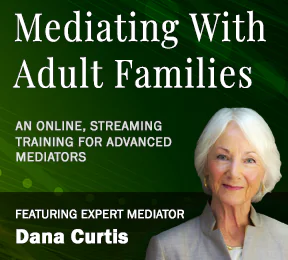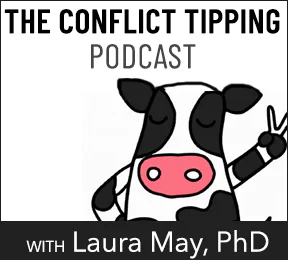Mediation can be like a box of chocolates. How so? Well, as Forrest Gump famously said, “you never know what you’re going to get.” That’s the case with the clients you’ll be working with as a mediator. While some may be relatively easy to work with, there are “difficult” clients as well that can make it more challenging to settle a case. However, over 25 years of mediating experience, I’ve developed some strategies can help you manage even the most challenging clients — and improve the likelihood of a successful mediation.
Prepare in Advance
If you learn that you’re going to be dealing with difficult clients, talk with their counsel ahead of time to learn what makes them more willing to open up. Do they have kids? Grandkids? Hobbies? Have they traveled somewhere recently? Look for anything that you can connect on to let you start the process on a basis other than the dispute.
If you talk to counsel before the mediation, ask about the hurdles to settlement. Is there an emotional issue that isn’t related to the risks or the value of the case? Is the client going to be difficult because it’s the way he or she is, or to try to gain an advantage at mediation? Knowing potential hurdles in advance can let you prepare for them.
Disarm with Charm
You don’t have to know anything about a client to start to build a connection the day of mediation. I live in Nashville but if I do a mediation in Atlanta, I might ask a party, “how do you handle all of this traffic?” or ask for a restaurant recommendation if I’m staying over that night. Some parties are loaded for bear and ready to blast anybody who gets in their way. When you start off with a target on your chest, you have a better chance of getting shot. So, I try to disarm the person early on.
Show That You’ve Done Your Homework
What are the three essential words for dealing with difficult clients? Prepare, prepare, prepare. Nothing impresses a difficult person more than seeing that you are prepared and understand the issues. Before a mediation, I study both sides’ cases.
During my opening joint session, I’ll say to the plaintiff, “before we get started, let me make sure I understand your case.” Then I recite the substance of the case pretty clearly and say, “make sure you correct me” and generally he or she will listen, and say, “yes, that’s correct,” or add something.
Demonstrate the Risk
When I’m describing the plaintiff’s case, I’m looking at the plaintiff. But I’m actually talking to the defendant and helping the defendant understand the risk of the case.
Then I do the same thing, but with the defendant, going over the defendant’s case. I’m looking at the defendant but now I’m talking to the plaintiff and making sure the plaintiff can understand the risk. That’s the first step — for both parties to understand the risk if they don’t settle.
I’ll tell both parties during the opening that we can close the mediation if either side’s lawyer has said they have a 100 percent chance of prevailing — because no lawyer will say that. Even if there is a slight chance of losing, things happen at trial. A key witness can go off the rails. The jury doesn’t like your client. Those things can happen even when you have a good case, and I want the parties to be thinking about that.
Shut Up and Listen
Mediation is a different thing than lawyering. In mediation, you’re trying to get people to talk. You’re trying to get them to open up. They may come in with a lot of bravado but if you get people to talk, sooner or later they’ll give you a chink in the armor and you can use that.
You have to be pretty nimble as a mediator, and often the best way to be nimble is to shut up and listen. Particularly with difficult clients, sometimes you just have to let them rant for a while to get it off their chest. Let them have their say. Shut up and listen—at least for the first significant portion of the mediation. When you shut up and listen, you know everything you know, and most of what they know and you’re way better off.
Read the complete article here.









